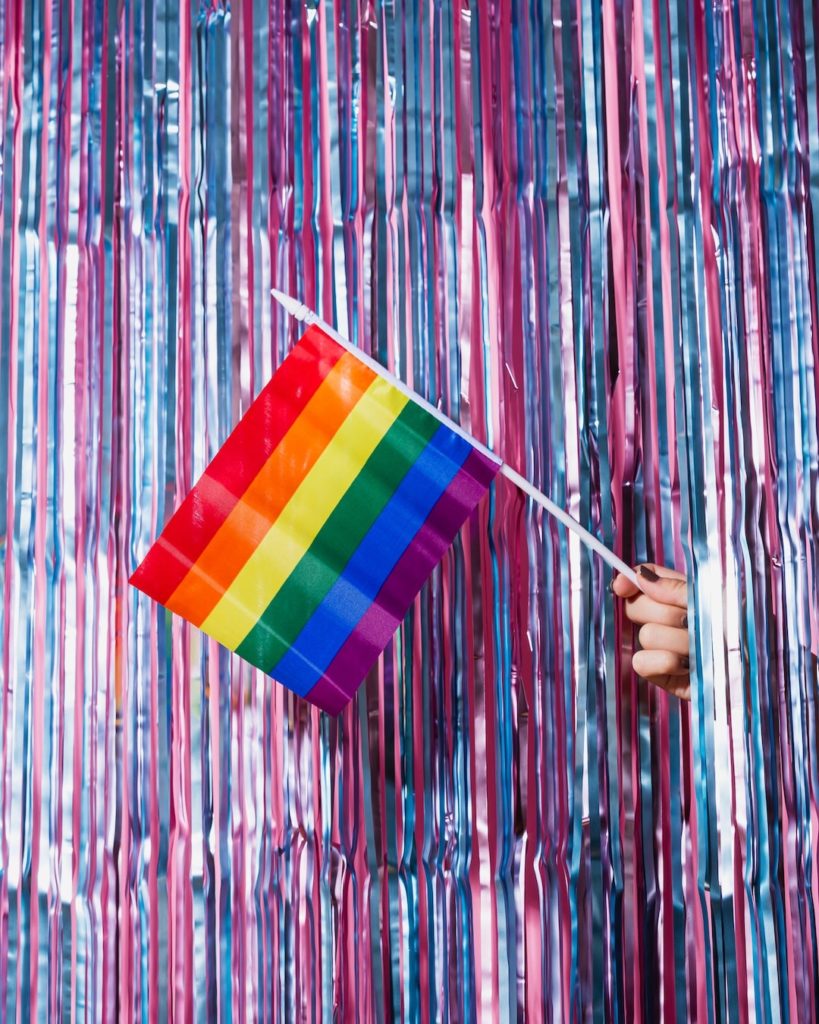People with mental health disorders and substance use disorders (SUDs) often hesitate to seek help out of shame, guilt, or fear of judgment. This is especially true for those of the LGBTQ+ community who often deal with unique struggles due to their sexuality or gender. Out of fear of not feeling seen or heard, many people in the LGBTQ+ community do not reach out for help.
However, at Roots Recovery, we have trained staff members and professionals experienced in helping LGBTQ+ people who struggle with mental health disorders and SUDs. Research shows that members of this community disproportionately experience these disorders. This can also lead to higher suicide rates and poor outcomes for their general well-being.
It is important for people in this community to feel seen and heard while going through therapy or treatment. We know that their mental health and recovery journeys matter.
LGBTQ+ Community at Roots Recovery
While helping people with their mental health and recovery journeys, Roots Recovery also offers services specific to gender identity and sexuality. Staff members understand that these factors are components of clients’ lives, and it is important to talk about them as needed. Validating clients’ experiences as members of the LGBTQ+ community and making them feel heard is important at Roots Recovery. Regardless of one’s life experiences and sexuality or gender identity, all clients deserve equal care to heal the pain of the mind, body, and heart.
The goal of the LGBTQ+ care program at Roots Recovery is to acknowledge, validate, and accept all life experiences clients share with our staff. In individual and group therapy sessions, therapists are trauma-focused and trained in eye movement desensitization and reprocessing therapy (EMDR).
Individual and Group Therapy Goals
In individual therapy sessions, clients explore parts of their lives that caused problems. In group therapy sessions, staff members work to create a gender and a sexually-diverse group of clients seeking guidance for substance abuse, mental health, chronic pain, and trauma.
In group therapy sessions, it is essential to create this diverse group for clients to gather a deeper understanding of themselves in the world and a greater emotional intelligence about other people’s struggles. Gaining empathy for others allows clients to move forward in the world through a new lens. With the help of these groups, people find themselves listening more open-mindedly to people of all different backgrounds, identities, and sexual orientations equally.
These group therapies may include creative groups, such as art therapy or music therapy, where clients learn to express themselves differently. These therapies help clients develop a deeper understanding of themselves and those in the group.
Fostering Hope for the Future
Roots Recovery focuses on helping clients have hope for their futures. We help them break away from their mental health disorder or SUD and begin to create a fulfilling life beyond these barriers and turmoil. This whole-person approach allows clients to understand themselves on a deeper level. They learn how to reconnect their mind, body, and soul, which is significant for the LGBTQ+ community when dealing with societal hardships.
Creating a deeper connection between these aspects of one’s self allows the client to repair and begin to heal themselves and their relationships with others. Especially when going through this journey with others, the integrative care model allows everyone to support each other while going through the therapies or treatments.
A Whole-Person Approach
The whole-person approach we offer includes a mix of standard and holistic therapies. These include cognitive-behavioral therapy (CBT), spiritual exploration, mindfulness and meditation, and experiential groups such as drumming, music, and other expressive therapies.
Correcting Unhealthy Thought Patterns
CBT focuses on exploring the client’s relationship with their thoughts, feelings, and behaviors. This therapy is beneficial for the LGBTQ+ community to address their unhealthy patterns of thinking. It is easy to have negative thoughts, especially as a sexual minority. These thinking patterns are revealed and discussed during CBT treatment to develop healthier behaviors and beliefs.
Exploring Spirituality
In spiritual exploration alongside mindfulness and meditation, clients work on healing their spirit, as seen through the whole-person approach to care. By calming the mind and working on healthier coping mechanisms, many clients increase their connection with a higher source, which helps their external life work better.
Resources for Continuing Support
Likewise, these services at Roots provide coping mechanisms that can be used outside the facility. Clients implement these newfound strategies and coping tools into their daily life. After finishing treatment, members of the LGBTQ+ community can continue their care. Not only will they be able to support themselves with new tools, but they can also receive additional support from Roots practitioners. They will have the resources they need to continue their mental health or substance use recovery journeys and find long-lasting success.
Here at Roots Recovery, our staff and professionals focus on making sure each client feels seen, heard, and validated as they go through care and treatment. We have a program that is designed specifically for members of the LGBTQ+ community. In group therapy sessions, we curate a sexually diverse group. This helps all group members gain empathy and greater emotional intelligence, creating a safe environment for members of the LGBTQ+ community to open up and heal. In individual therapy, our staff is trained to treat every client equally, focusing on their mental health or substance use disorders to help clients create fulfilling lives. To learn more about our services for the LGBTQ+ community, call (562) 473-0827.




